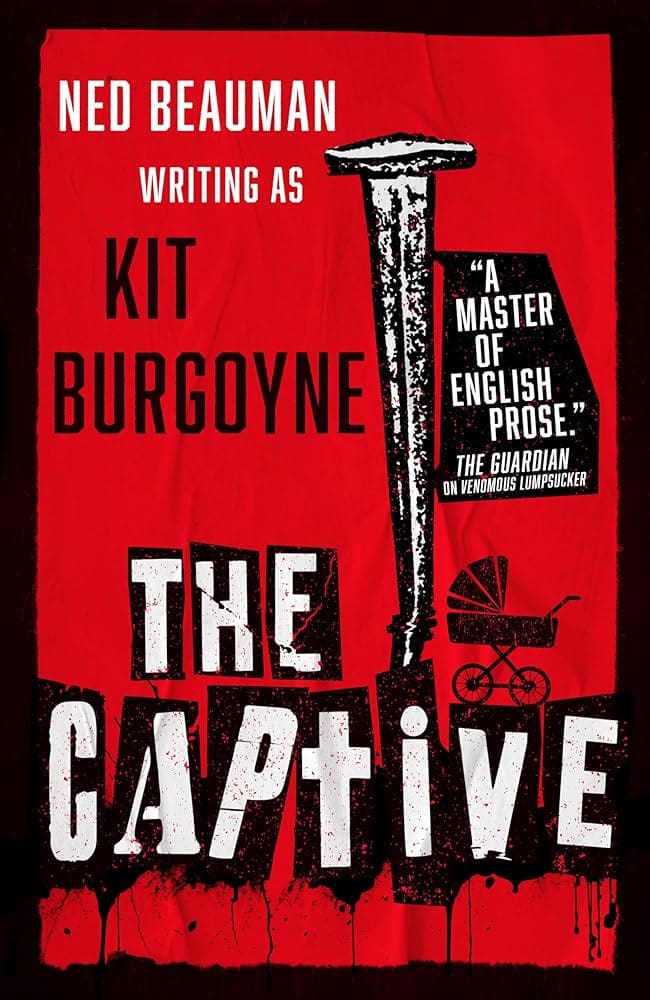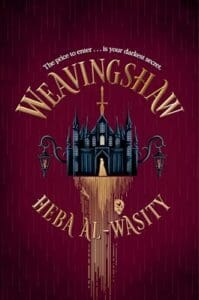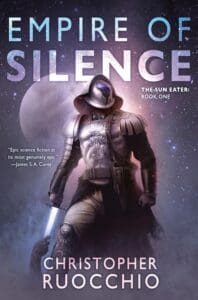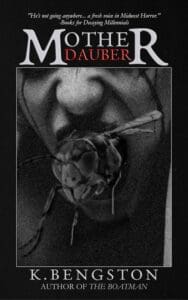
Synopsis:
Underground revolutionary group, The Nail, and their newest member, Luke have kidnapped 23-year-old heiress Adeline Woolsaw, whose wealthy parents run the Woolsaw Group, a vast outsourcing company. They run everything from prisons and hospitals to military bases – quietly suffocating the country with the help of powerful friends in government.
The Nail’s plan: to use the kidnapping to draw attention to the Woolsaw Group and their terrible practices. But with Adeline bundled into their van, The Nail discover two things. The first is that she’s just about to give birth. And the second is that this isn’t a normal baby. In fact, it has devastating supernatural powers. Because the father of this baby wasn’t a man, it was… something else. Something that her parents make human sacrifices to on an altar in the basement of their Highgate mansion. And all this time the Woolsaw Group has been preparing the ground for the Woolsaws’ real aim: an infernal new kingdom that will rise with Adeline’s son sitting on its throne.
Review:
Picture “Rosemary’s Baby,” in a gnarly custody battle for the ages, and you’re about halfway to Kit Burgoyne’s “The Captive.” A bloody, barbed and preposterously good time, with the grit and propulsion of Keith Rosson’s “Fever House,” the supernatural slight of hand of Thomas Tryon’s “The Other,” and a deep-rooted conspiracy that I imagine can only be completely unique to it, “The Captive,” is exactly the offal-plastered zinger I was desperate for it to be. Humorous and absurd- almost theatrically so, but weighted enough with grim reality to keep the laughter jagged in your throat- “The Captive,” is both a riot and a reckoning, and is barrelling into the world from Titan in the UK and Hell’s Hundred in the US September 30th.
The Woolsaws infiltrate almost every aspect of the British public’s lives, and yet it’s one of those names that nobody knows. The Woolsaw Group runs detention centres and mental hospitals and trains, and has its manicured thumb on the government, the press and firmly over the pulse of the nation. They are everywhere and nowhere, they have their finger in every pie, they’re powerful, and as far as the anti-capitalist group “The Nail,” are concerned, they’re filthy. So, naturally, they kidnap their daughter.
The plan is risky, snatching her up off of the street, but seems to work… only what they didn’t know is that 23 year old Adeline Woolsaw is pregnant, very heavily pregnant, and when she goes into labour, zip tied in the back of a van, well, that’s an escalation. Things escalate further still when following freak weather, a bunch of insects and a delivery that can only be described as unusual, the group has to suspect that this is no ordinary baby.
All literature, including horror, is inherently political, although in some works this appears more flamboyantly than in others. “The Captive,” is a good example of exactly this. Here, contempt toward the British political system (and as we’ll discuss momentarily, every other political system really) and the obscene inequalities it cultivates, appears in every fibre of every page. I’m delighted and horrified for two reasons, the first is that I’ve studied UK politics, and this novel is full of sly references and little jabs that the student in me very much enjoyed. The flip side though, is that Burgoyne doesn’t entirely misrepresent the reality of it. Did you know that the Office for National Statistics found that in the UK, the wealthiest 1% own 10% of wealth, more than the bottom 50% combined? I would say that’s pretty scary, but perhaps that’s just me. The second is that despite these very British references, “The Captive,” has a US pub deal too. Yay! The flip side of THAT is that it really highlights that this is a global issue. If you take out the NHS and swap out the Prime Minister with a president or a monarch or an emperor… it still works. From the Rothschilds to the Rockefellers, demon baby and satanic ritual aside, “The Captive,” whilst steeped in Britishness, is depressingly exportable. And there, is my rant for the day.
Let’s talk about “The Nail,” though. Yes, they recognise the injustice I just discussed, yes, they’re about the only ones ready to take decisive action against it, but saints, they most certainly are not. They’re deeply flawed, volatile, human characters. Cam, the ring-leader has seen too much in his 40 odd years, he is full of distrust and paranoia, “The Nail,” is his entire life. Luke is driven by grief and emotion, and whilst “The Nail,” is his entire life too, he regrets that sometimes. Whilst Cam is steel, Luke is a softer metal, pliable, easier to bend, easier to break. I think where a lot of the commentary lies though is with Rosa. She is a spark in a powder keg, driven by real rage. Her desire for change sometimes sounds like it demands casualties. Largely with Rosa, Burgoyne explores the line between protest and terror. When does righteous fury cross into something else completely? It’s particularly apt in the face of, yes,riots and civil disobedience, but also the ever-tightening noose around the right to protest (see The Trade Union Act 2016 for one, The Police, Crime, Sentencing and Courts Act 2022 for another), and it makes the novel a hell of a lot more complex. Absolutely the scariest thing about “The Nail,” is that they’re right, but the second is what some of them may be capable of in order to prove it.
Well I feel I’ve ranted about British politics for long enough now, so I’ll conclude. I do feel I’ve barely touched upon the satanic ritual, demon baby aspect of it, but for three reasons, I’m just gonna leave it. a) The less you know about that, the more fun you’ll inevitably have when you pick it up for yourself, b) I’m getting tired and my back hurts, c) isn’t it telling that I could almost completely set the supernatural aside, and still have so much to say? Hmmm? Anyway, Black Mirror’s “The National Anthem,” meets Mike Flanagan’s “The Fall of The House of Usher,” and then sprouts horns, cries and shits itself in this hilariously bleak, sharply written, generally wonderful ode to Levin. This is not Ned Beauman’s debut, but it is Kit Burgoyne’s, and I’m already hungry for more.









Leave a Reply